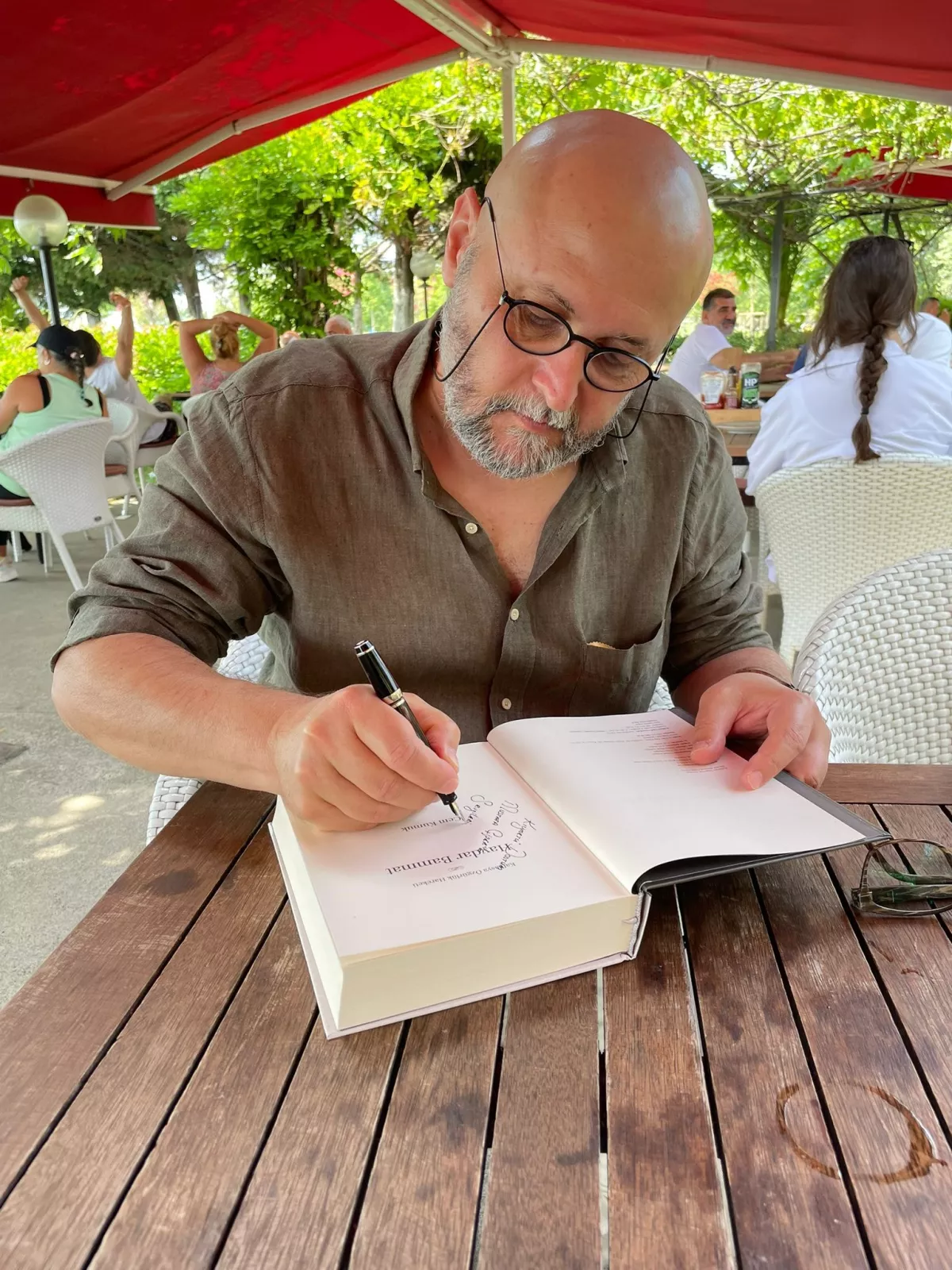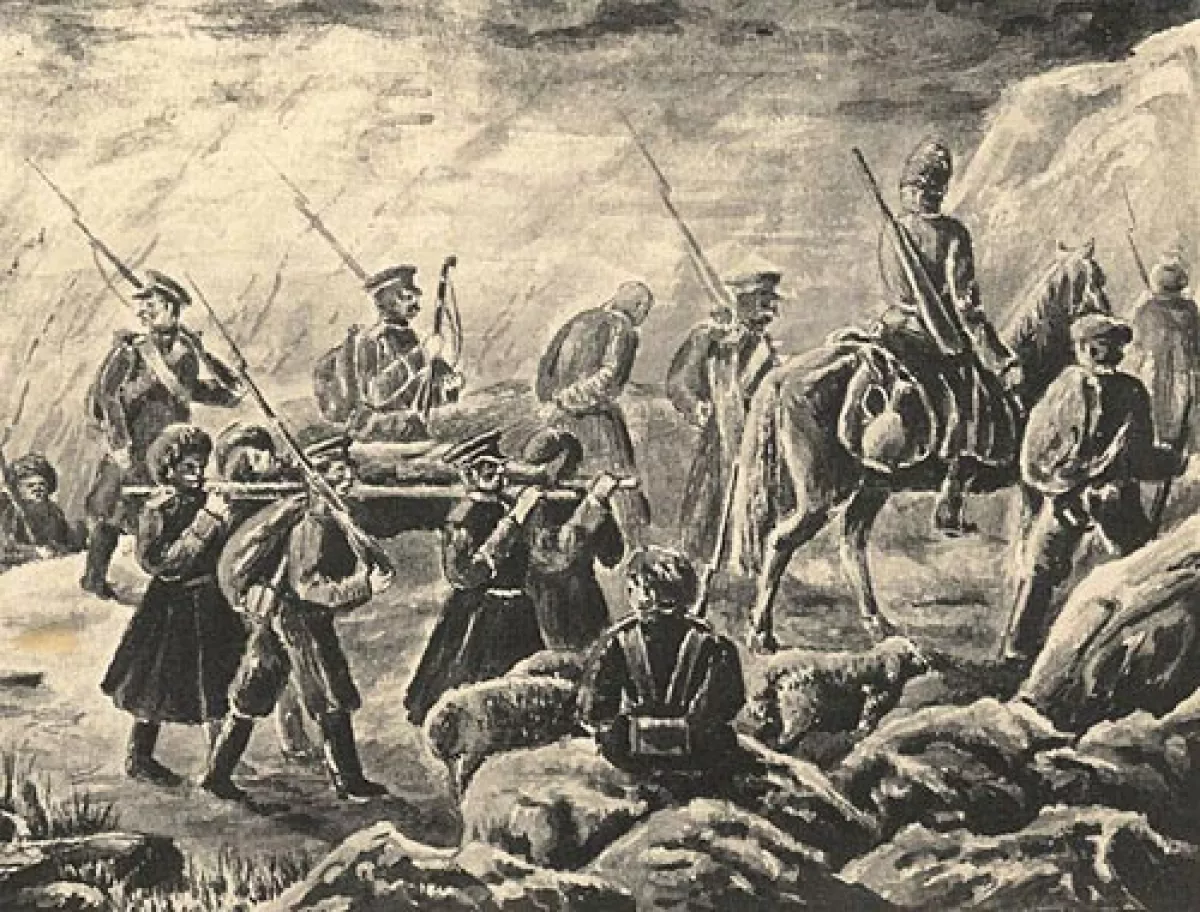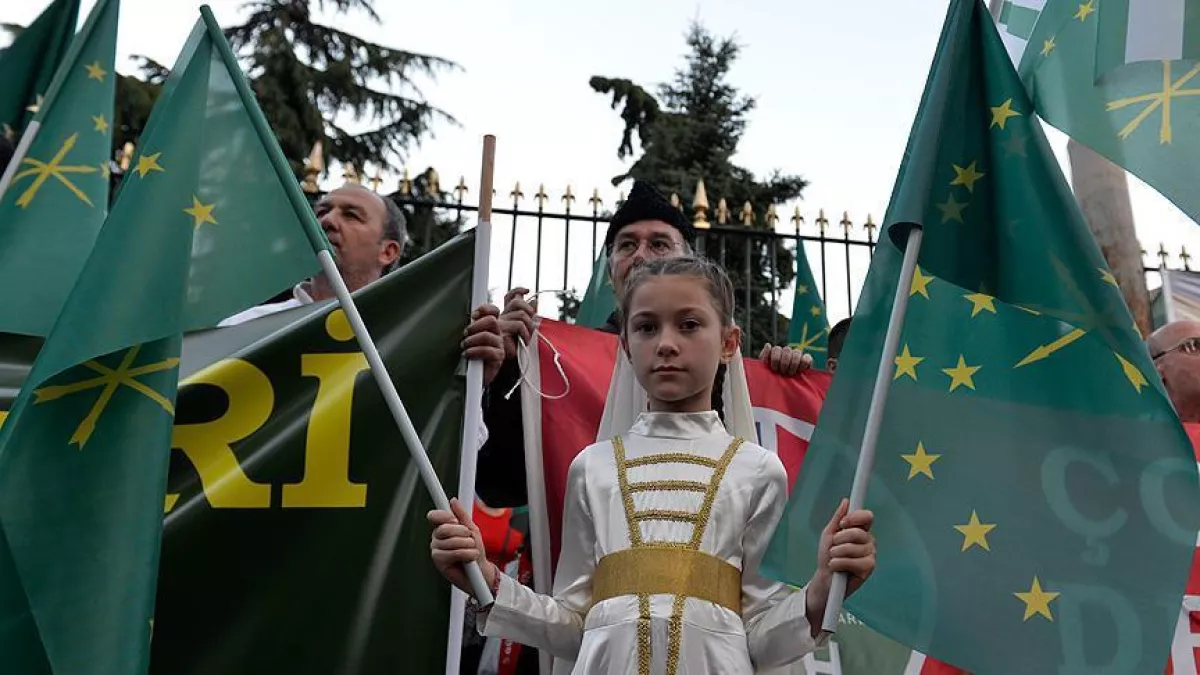“Circassian genocide in the Caucasus surpassed Roman Empire’s cruelty” Historian on tsarist Russia’s brutal campaign
In the 19th century, the Circassians became victims of the brutal policies of Tsarist Russia. Hundreds of thousands of representatives of one of the Caucasus’s most ancient peoples were killed or expelled from their native lands, finding refuge in the Ottoman Empire. Today, they live in Türkiye, Jordan, and Syria, preserving the memory of the sorrowful and painful chapters of their people’s history.
However, unlike the genocides of other nations, the tragedy of the Circassian people remains largely ignored. To this day, only Georgia and Ukraine have officially recognised the deportation and extermination of the Circassians as genocide. Russia, apparently viewing the issue as too inconvenient, refuses to discuss the matter with the descendants of the Circassian people in exile.
Caliber.Az spoke with Jem Kumuk, a historian and expert on the Caucasus based in Istanbul, about the current situation of the Circassians and the prospects for their possible return to their historical homeland.

– How many Circassians live in Türkiye today? What is their situation, and what kind of support do they receive from the Turkish state?
– Since ethnic data is not officially recorded, there are no precise statistics on the number of Circassians living in Türkiye. However, although industrial urbanisation has significantly reduced the population in rural areas, if we look at the population numbers of villages historically inhabited by indigenous North Caucasian peoples before urbanisation, we can estimate that there are around 5 to 7 million people of North Caucasian descent scattered across various regions of Türkiye.
Unfortunately, Circassians have struggled to adapt to the development of industry, trade, and urban life in their new places of residence. These changes have had a highly negative impact not only on their economic and social well-being but also on their ethnic and cultural identity. The number of mixed-ethnicity marriages has increased, and their language is being forgotten more and more with each passing day. The state does not have any specific programme for Circassians.
Under the terms of the Treaty of Lausanne, Circassians are not recognised as a minority group and, therefore, do not benefit from any institutional structures for their economic, social, or cultural development, aside from their own civil society organisations. Assimilation mechanisms are accelerating day by day, and the Circassian population in exile is gradually disappearing into the societies in which they live.
– Why were the Circassians specifically targeted by Tsarist Russia?
– Unlike the eastern Caucasus, the Circassians were always vulnerable to manipulation by the Russian Empire’s political and military adversaries via the Black Sea. Therefore, the empire did not settle for merely conquering Circassia — it sought to create a territory cleansed of its indigenous population and repopulate it primarily with Russians and other loyal subjects. From the very beginning of the Russo-Caucasian wars, the Russian Empire pursued a deliberate policy of ethnic cleansing against the Circassians.
– In a 2010 interview with Voice of America, political scientist Paul Goble, a former adviser to the U.S. State Department on national minorities, stated that the creation of a unified Circassia — considering that over five million Circassians live outside of Russia — would inevitably pose a challenge to Moscow’s control in the North Caucasus. He also noted that Moscow is seriously alarmed by the possibility that all subgroups — Kabardians, Adyghe, Shapsugs, and others — might identify themselves simply as Circassians, which could further undermine its influence in the region. How does Russia currently respond to the Circassian issue? Are there any contacts with Moscow regarding this matter?
– A unified Circassia would never pose a threat to Russia. The current demographic balance favours other ethnic groups, such as Russians, Cossacks, and Armenians. The Circassian population is not growing. But the issue lies in the fact that Russia officially denies the existence of a “Circassian question” within its borders.
Since Moscow began appointing officials to lead the region’s autonomous republics instead of allowing them to be elected, national issues in the North Caucasus have been silenced and are no longer discussed. Public opinion leaders, scholars, and journalists face intense pressure. The extremism law places a taboo on all social issues. As a result, Moscow refuses to engage in any dialogue on the matter, which, as far as I understand, it considers closed.
– Do the Circassians even want to return to their historical homeland?
– Circassians living in the diaspora have never lost their connection to their homeland. If the processes of obtaining citizenship and repatriation were simplified from a bureaucratic standpoint, and if the Russian authorities provided humanitarian support on this issue, then without a doubt, many Circassians would wish to return to their ancestral lands. But what do we mean by “many”? In today’s world, a large-scale migration cannot be expected. Perhaps 10% of the 5 to 7 million people in the diaspora might consider taking advantage of such an opportunity.

However, it should not be forgotten that, given the situation of the Circassian population living in the homeland, even 10% of the diaspora population would be of great significance for our people. These ten percent could help prevent the disappearance of Circassian identity from history, while posing no threat whatsoever to Russia’s national security.
Therefore, the Russian government should approach this issue not with political prejudice, but from a humanitarian perspective. Such a step would give the Russian authorities at least a partial chance to restore their reputation, which has been damaged by ongoing human rights violations.
– How does the Circassian diaspora — particularly large in Türkiye, Jordan, and Syria — continue its struggle for justice and the recognition of genocide? In what ways does it clash with Russian legislation?
– As is well known, official recognition of genocide accusations depends on the legitimisation of the issue by the United Nations Security Council. Ironically, all permanent members of the UN Security Council with veto power have themselves been historically guilty of committing genocides against occupied peoples. Yet these facts are largely silenced. Only Germany has been officially held accountable for the Holocaust — the genocide of the Jewish people — whereas other countries have, in essence, evaded responsibility.
As a result, due to this impasse, the prospect of the UN Security Council recognising any claim of Circassian genocide is highly unlikely. None of these countries is willing to create a precedent that could backfire on their own historical records. Furthermore, even if the Security Council were to recognise the Circassian genocide, such a decision would carry no enforceable or punitive consequences for the Russian Federation today.

Recognition by individual states through parliamentary decisions is also extremely difficult, due to those countries’ energy, trade, and diplomatic ties with Russia — another layer of pressure that influences such decisions. In fact, recognition of the Circassian genocide by any given country today largely depends on whether its relationship with Russia has reached a state of open conflict, as in the case of Ukraine.
Despite being ignored in international diplomatic circles for these and other reasons, Russia was condemned by the societies of various countries for its crimes against the Circassians as far back as 160 years ago. No official recognition or denial can change that historical fact.
Therefore, the main legal and political battle that must be fought with Russia should focus on obtaining documented, official recognition of the genocide, followed by the legalisation and facilitation of the Circassians’ return to their homeland. This effort should also involve encouraging the partner states of the Russian Federation to support and ease this process.
Circassians do not seek revenge — they seek justice.
– What is the estimated number of victims of the Circassian genocide? Sources vary widely, and Russia clearly has no interest in that number being made public.
– Based on the population figures of settlements prior to the expulsions, it is estimated that around 2 million Circassians were driven from their native lands in the 19th century, and approximately 1.5 million perished as a result of the genocide. It is also important to examine the demographic situation in the Western Caucasus before the deportations and genocide. The state of the Russian, Cossack, and other ethnic settlements that were established on the former sites of Circassian villages provides a clear indication of the scale of the expulsions and the genocide.
Indeed, when studying archived documents from the Russian army of that period, as well as the memoirs of Russian soldiers and officials, and the travel notes of foreign visitors, it becomes evident that the brutality of the ethnic cleansing campaign surpassed even the atrocities committed by the Roman Empire’s army during its conquests.








